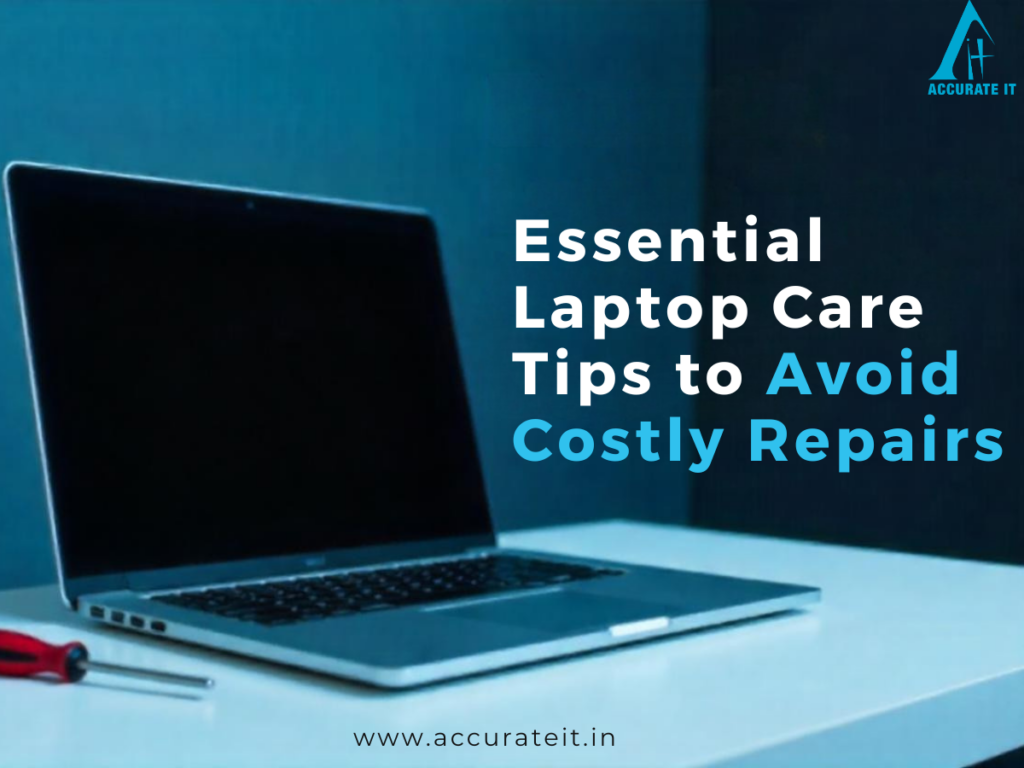Laptops are essential tools for work, study, and entertainment, but excessive heating can lead to performance issues and even hardware damage. If your laptop heats up frequently, it’s important to identify the causes and apply the right solutions.
Common Causes of Laptop Heating Issues
- Dust Accumulation in Vents and Fans
Over time, dust can clog the cooling system, preventing proper airflow and causing the laptop to overheat. - Overloaded CPU and GPU
Running heavy applications like video editing software or games can put excessive strain on the processor and graphics card, leading to high temperatures. - Old or Inefficient Thermal Paste
The thermal paste between the CPU and heat sink dries out over time, reducing heat dissipation and increasing the risk of overheating. - Faulty or Blocked Cooling Fan
A malfunctioning fan can’t regulate temperature efficiently, causing the laptop to heat up quickly. - Using Laptop on Soft Surfaces
Placing the laptop on a bed, sofa, or blanket can block ventilation, trapping heat inside. - Aging Hardware
Older laptops, especially refurbished laptops, may have worn-out components that generate more heat due to inefficient cooling.
How to Fix Laptop Heating Issues
- Clean the Air Vents and Fans
Regularly remove dust from vents using compressed air or a small brush to ensure proper airflow. - Use a Cooling Pad
External cooling pads help dissipate heat by providing additional airflow beneath the laptop. - Limit High-Performance Tasks
Close unnecessary background applications and avoid running too many programs simultaneously to reduce CPU and GPU workload. - Replace the Thermal Paste
If your laptop is still overheating despite cleaning, consider applying fresh thermal paste to improve heat transfer from the processor. - Check and Replace Faulty Fans
If the cooling fan is noisy or not working properly, get it checked and replaced at a laptop repair center. - Use Your Laptop on a Hard, Flat Surface
Always use a hard surface like a desk to allow proper ventilation. - Upgrade or Replace Components
If your refurbished laptop continues to overheat, upgrading RAM, storage, or cooling components can help. - Regular Maintenance and Servicing
Routine laptop repair and servicing can prevent overheating issues by keeping internal components in good condition. If your laptop also faces issues like frequent shutdowns, slow performance, or connectivity problems, getting a professional checkup is recommended.
Conclusion
Laptop heating issues are common but can be effectively managed with proper maintenance and care. Keeping your laptop clean, ensuring proper ventilation, and seeking professional laptop repair services when necessary can extend its lifespan and enhance performance. If you’re using a refurbished laptop, regular servicing is even more crucial.
For expert laptop repair, printer repair, and maintenance services, visit Accurate IT Sales and Services, Kandivali West. Their team of professionals ensures your devices run smoothly with top-quality repairs and servicing.



